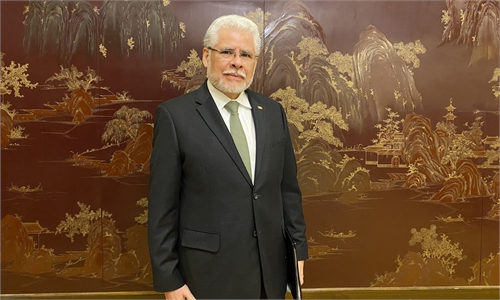SCI-TECH / PHYSICS
World-renowned scientists share latest findings in Beijing
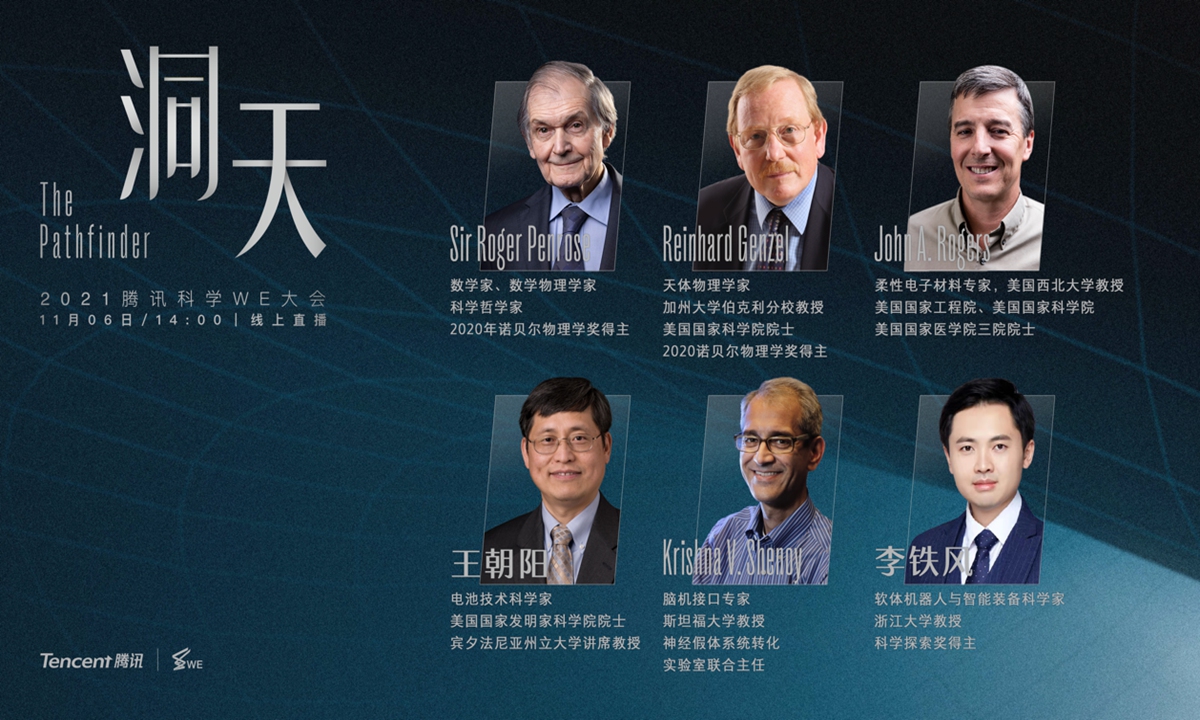
Photo: Courtesy of Ludi
On Saturday in Beijing, leading scientists shared their latest findings and cutting-edge global technology updates, which are set to push the boundaries of human imagination and could also have implications for everyday life.
Under the theme of “The Pathfinder,” the Way to Evolve Summit is an annual event hosted by tech giant Tencent. World-renowned scientists are invited to take the stage and share the most innovative breakthroughs.
“By 2021, it became clear that our practices had to change. We could improve our quality of life, leveraging our new technologies and escaping the traditional constraints of nature while maintaining a new balance with natural forces on Earth,” said David Wallerstein, chief exploration officer and senior executive vice president at Tencent.
Two Nobel Prize laureates, British mathematical physicist Sir Roger Penrose and German astrophysicist Reinhard Genzel, shared key insights from their research achievements, as did other leading scientists including John A. Rogers, Krishna V. Shenoy, Wang Chaoyang. Li Tiefeng, winner of the XPLORER Prize established by Tencent Foundation, also spoke at the event.
Looking at black holes
Sir Roger Penrose, emeritus professor at the University of Oxford, discussed the evolution of thinking around black holes, singularity and cyclic cosmology, and his experience spending decades alongside great minds such as Stephen Hawking.
Penrose explained the application of mathematics in general relativity and black hole research at the meeting, while also discussing the origins of the universe.
Reinhard Genzel, professor at the University of Munich and emeritus professor at the University of California, Berkeley, provided an overview for the audience of his 40 years of work in proving the existence of black holes through observational methods.
Route to a post-modern lifestyle
John A. Rogers, a soft electronic material scientist and professor at Northwestern University, introduced his work on epidermal electronics, application principles, and how they are being deployed for patients in need, particularly in pediatric intensive care, while making devices accessible and affordable for low-income groups.
Rogers mentioned the pacemaker as an example. “It can go inside the body, function for that important time period, but then after that period it could be designed to just dissolve, melt away and disappear in the body,” he said, indicating that soft electronic material would make it possible to avoid a secondary surgical procedure to extract the device.
Pennsylvania State University Professor Wang Chaoyang – whose research led to the development of all-climate battery technology that will be used in the 2022 Beijing Winter Olympics to power electric vehicles – shared his latest research achievements regarding 10-minute fast charging batteries.
Krishna V. Shenoy, neuroscientist and professor at Stanford University, shared his recent thinking about the development of brain-computer interfaces, and how the technology can be deployed to support people who have lost of their sense of independence due to existing medical conditions.
Li Tiefeng, a professor at Zhejiang University, revisited his 10 years of research into soft-material robotics, particularly how the novel robotic approach can mimic the movement of soft muscles, and lead to the development of more complex robotic structures or even creatures.
His research resulted in the creation of the first soft robotic fish by Chinese scientists, which was able to dive deep into the ocean and explore the 10,000-meter-deep Mariana Trench.
"We have a bold vision for the future, which is to apply this kind of software robot in space exploration,” Li said.

Photo: Courtesy of Ludi
On Saturday in Beijing, leading scientists shared their latest findings and cutting-edge global technology updates, which are set to push the boundaries of human imagination and could also have implications for everyday life.
Under the theme of "The Pathfinder," the Way to Evolve Summit is an annual event hosted by tech giant Tencent. World-renowned scientists are invited to take the stage and share the most innovative breakthroughs.
"By 2021, it became clear that our practices had to change. We could improve our quality of life, leveraging our new technologies and escaping the traditional constraints of nature while maintaining a new balance with natural forces on Earth," said David Wallerstein, chief exploration officer and senior executive vice president at Tencent.
Two Nobel Prize laureates, British mathematical physicist Sir Roger Penrose and German astrophysicist Reinhard Genzel, shared key insights from their research achievements, as did other leading scientists including John A. Rogers, Krishna V. Shenoy, Wang Chaoyang. Li Tiefeng, winner of the XPLORER Prize established by Tencent Foundation, also spoke at the event.
Looking at black holes
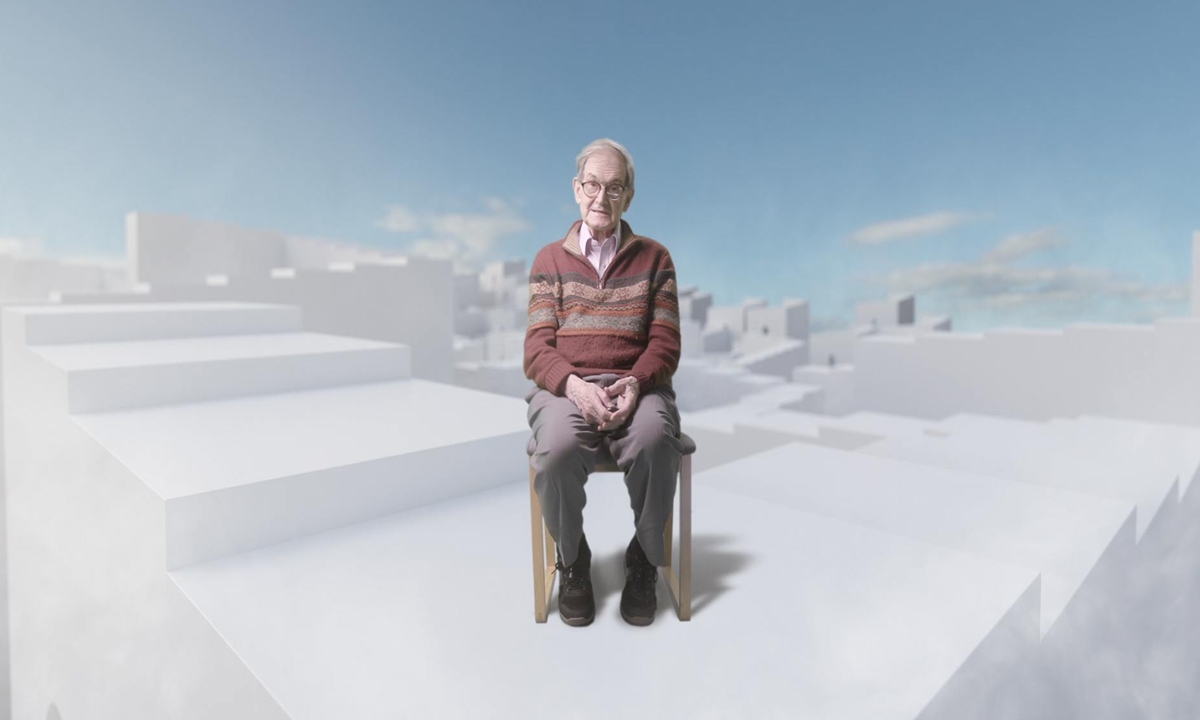
Sir Roger Penrose, Emeritus Professor at the University of Oxford Photo: Courtesy of Ludi
Sir Roger Penrose, emeritus professor at the University of Oxford, discussed the evolution of thinking around black holes, singularity and cyclic cosmology, and his experience spending decades alongside great minds such as Stephen Hawking.
Penrose explained the application of mathematics in general relativity and black hole research at the meeting, while also discussing the origins of the universe.
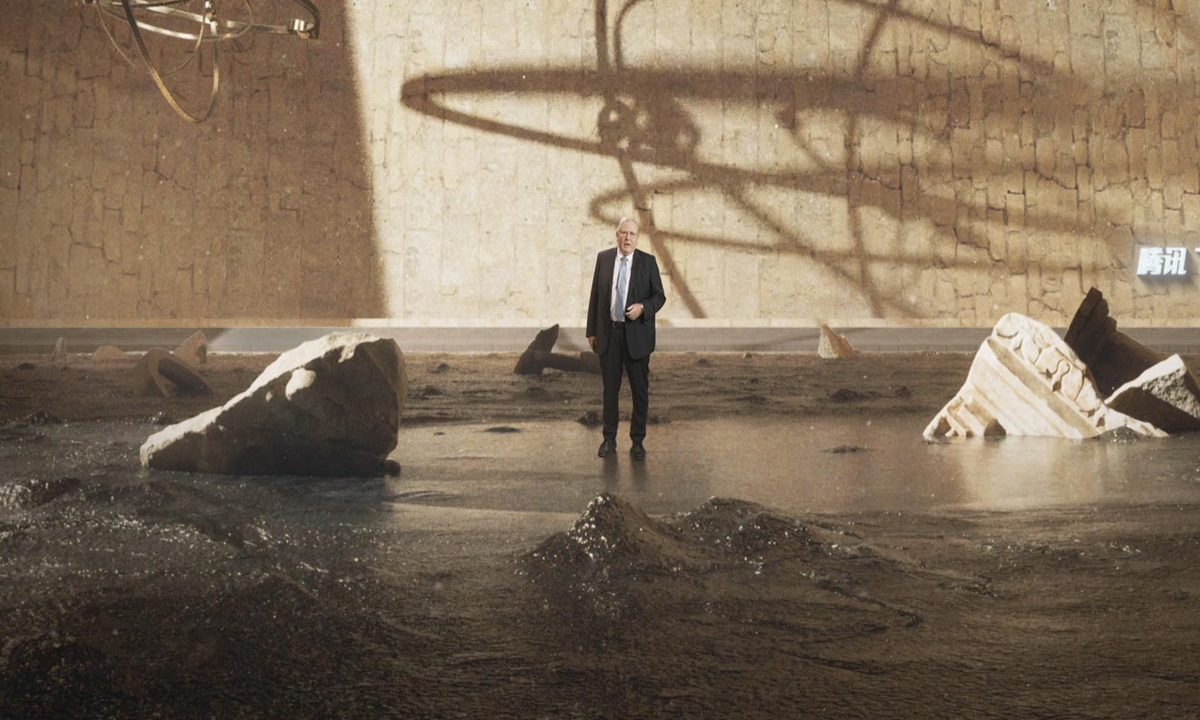
Reinhard Genzel, Professor at the University of Munich and Emeritus Professor at the University of California, Berkeley Photo: Courtesy of Ludi
Reinhard Genzel, professor at the University of Munich and emeritus professor at the University of California, Berkeley, provided an overview for the audience of his 40 years of work in proving the existence of black holes through observational methods.
Route to a post-modern lifestyle
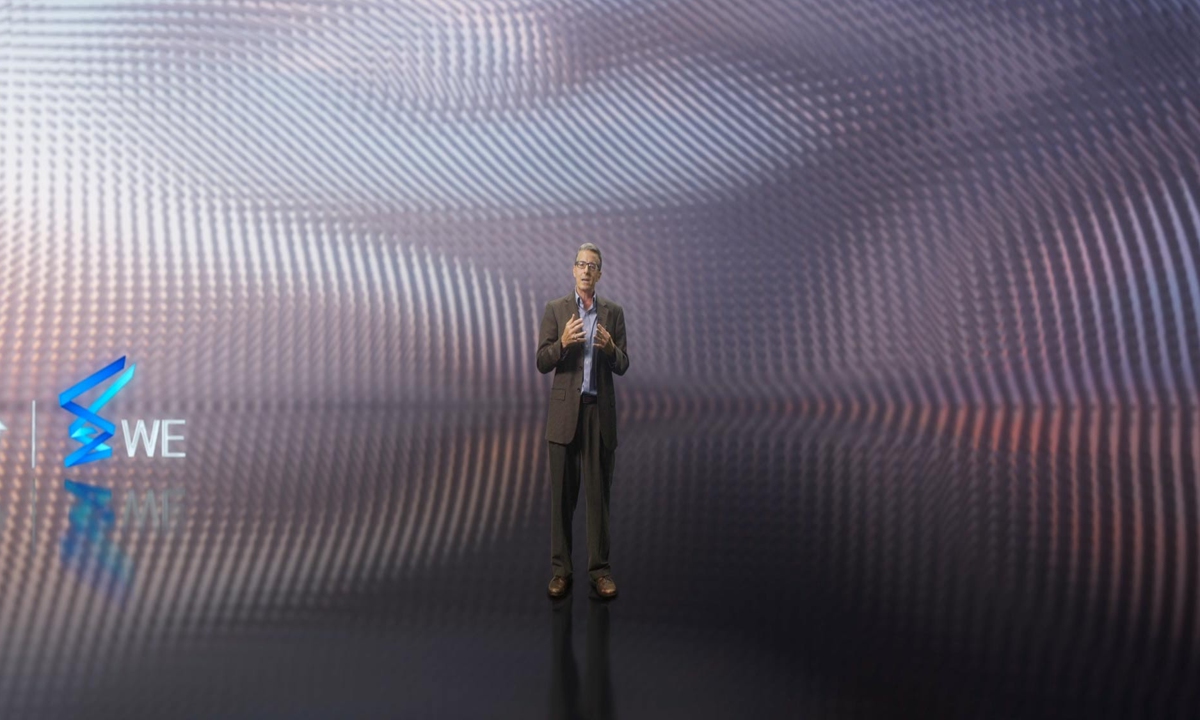
John A. Rogers, soft electronic material scientist and professor at Northwestern University Photo: Courtesy of Ludi
John A. Rogers, a soft electronic material scientist and professor at Northwestern University, introduced his work on epidermal electronics, application principles, and how they are being deployed for patients in need, particularly in pediatric intensive care, while making devices accessible and affordable for low-income groups.
Rogers mentioned the pacemaker as an example. "It can go inside the body, function for that important time period, but then after that period it could be designed to just dissolve, melt away and disappear in the body," he said, indicating that soft electronic material would make it possible to avoid a secondary surgical procedure to extract the device.
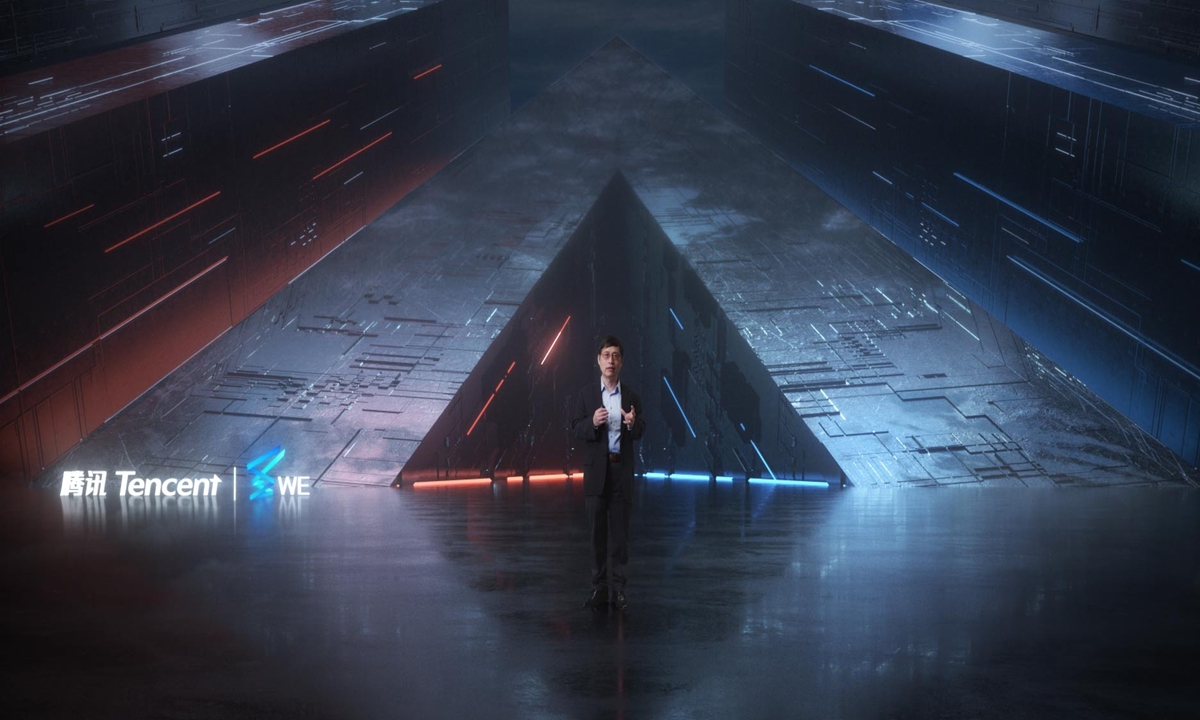
Pennsylvania State University Professor Wang Chaoyang Photo: Courtesy of Ludi
Pennsylvania State University Professor Wang Chaoyang - whose research led to the development of all-climate battery technology that will be used in the 2022 Beijing Winter Olympics to power electric vehicles - shared his latest research achievements regarding 10-minute fast charging batteries.
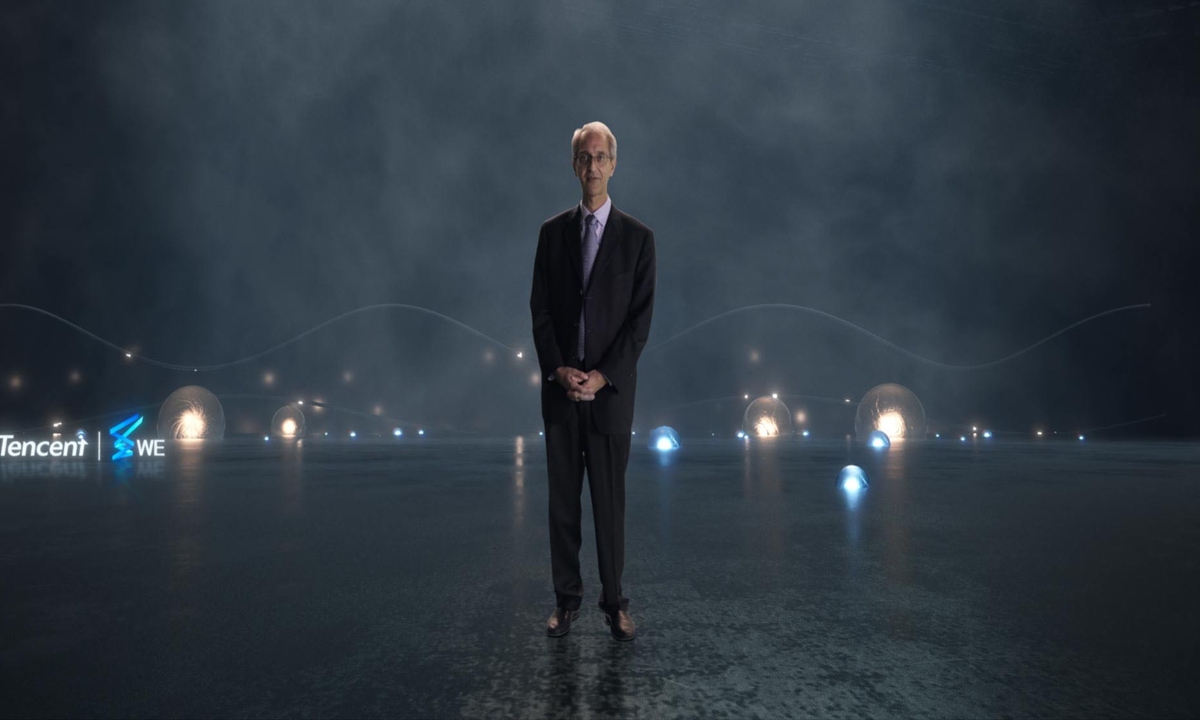
Krishna V. Shenoy, neuroscientist and professor at Stanford University Photo: Courtesy of Ludi
Krishna V. Shenoy, neuroscientist and professor at Stanford University, shared his recent thinking about the development of brain-computer interfaces, and how the technology can be deployed to support people who have lost of their sense of independence due to existing medical conditions.
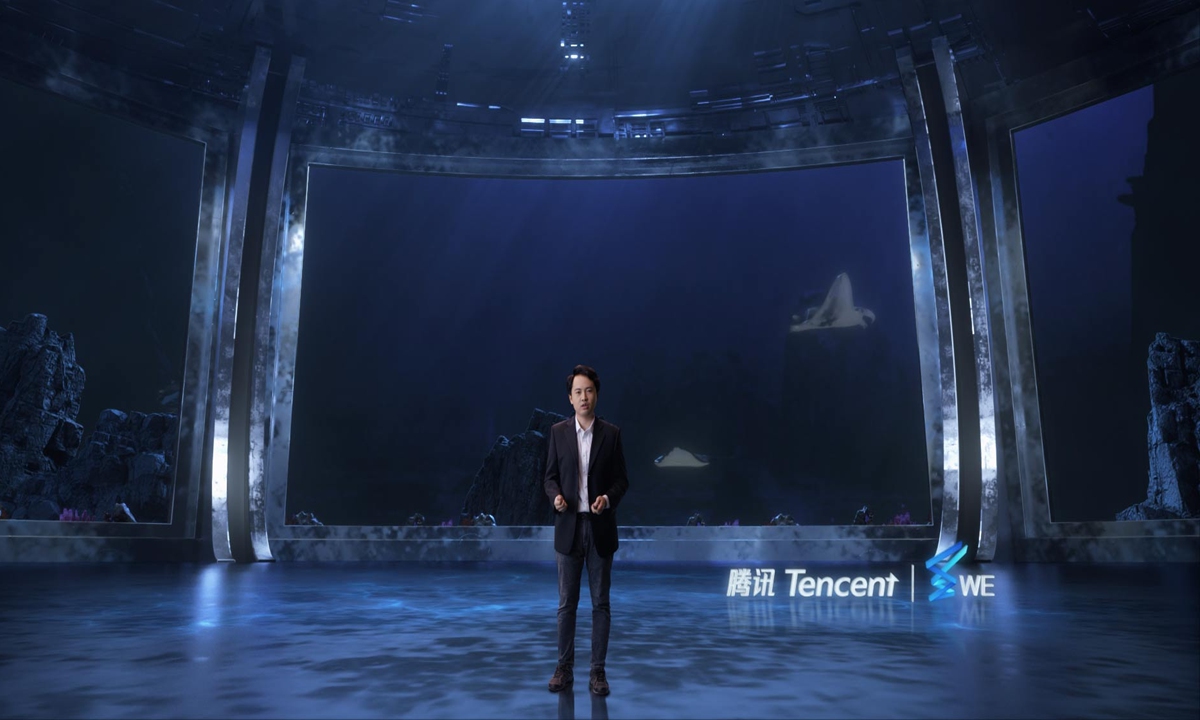
2019 XPLORER prize winner and professor at Zhejiang University Li Tiefeng Photo: Courtesy of Ludi
Li Tiefeng, a professor at Zhejiang University, revisited his 10 years of research into soft-material robotics, particularly how the novel robotic approach can mimic the movement of soft muscles, and lead to the development of more complex robotic structures or even creatures.
His research resulted in the creation of the first soft robotic fish by Chinese scientists, which was able to dive deep into the ocean and explore the 10,000-meter-deep Mariana Trench.
"We have a bold vision for the future, which is to apply this kind of software robot in space exploration," Li said.

